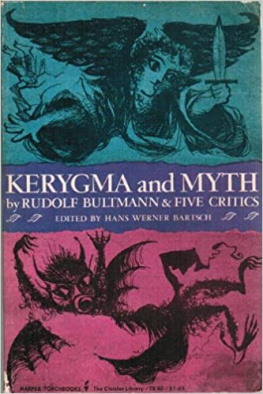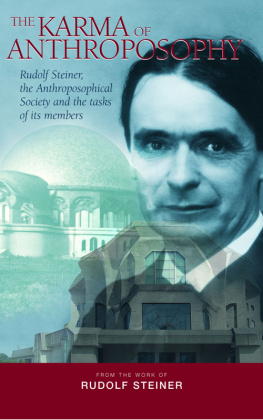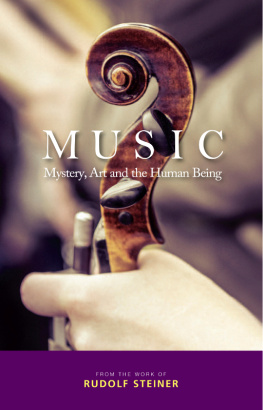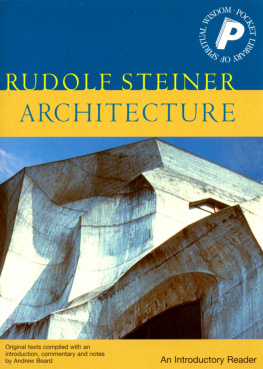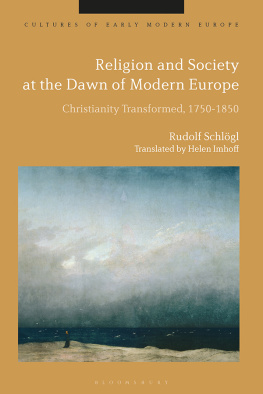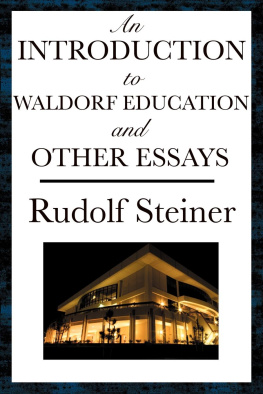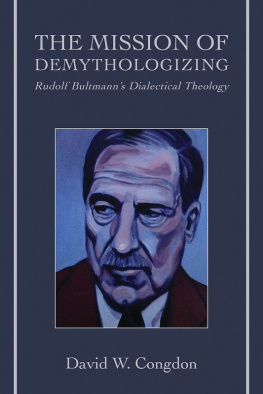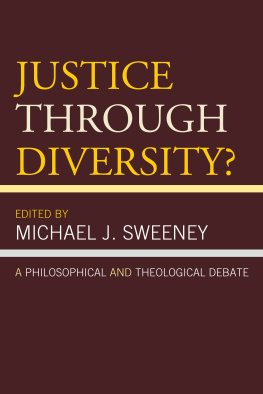Rudolf Bultmann - Kerygma and Myth: A Theological Debate
Here you can read online Rudolf Bultmann - Kerygma and Myth: A Theological Debate full text of the book (entire story) in english for free. Download pdf and epub, get meaning, cover and reviews about this ebook. year: 1961, publisher: Harper & Row, genre: Religion. Description of the work, (preface) as well as reviews are available. Best literature library LitArk.com created for fans of good reading and offers a wide selection of genres:
Romance novel
Science fiction
Adventure
Detective
Science
History
Home and family
Prose
Art
Politics
Computer
Non-fiction
Religion
Business
Children
Humor
Choose a favorite category and find really read worthwhile books. Enjoy immersion in the world of imagination, feel the emotions of the characters or learn something new for yourself, make an fascinating discovery.
- Book:Kerygma and Myth: A Theological Debate
- Author:
- Publisher:Harper & Row
- Genre:
- Year:1961
- Rating:4 / 5
- Favourites:Add to favourites
- Your mark:
- 80
- 1
- 2
- 3
- 4
- 5
Kerygma and Myth: A Theological Debate: summary, description and annotation
We offer to read an annotation, description, summary or preface (depends on what the author of the book "Kerygma and Myth: A Theological Debate" wrote himself). If you haven't found the necessary information about the book — write in the comments, we will try to find it.
Kerygma and Myth: A Theological Debate — read online for free the complete book (whole text) full work
Below is the text of the book, divided by pages. System saving the place of the last page read, allows you to conveniently read the book "Kerygma and Myth: A Theological Debate" online for free, without having to search again every time where you left off. Put a bookmark, and you can go to the page where you finished reading at any time.
Font size:
Interval:
Bookmark:
Kerygma and Myth
by Rudolf Bultmann and Five Critics
Forward by H. W. Bartsch
No single work which has appeared in the field of New Testament scholarship during the war years has evoked such a lively discussion as Bultmanns original manifesto, New Testament and Mythology (p.1 ff. in the present volume). Unless we are prepared to rule out any advance in New Testament scholarship in Germany since the outbreak of the war, like Ethelbert Stauffer in the preface to the third edition of his Theologie des Neuen Testaments (Stuttgart, 1947, p. v) we must surely recognize such an advance in this debate. Since the relevant material has hitherto been almost inaccessible, or available only to a very limited circle in cyclostyled form, it has seemed all the more urgent to place the discussion as a whole before the theological public. It will at once be seen that there is no question of our being able to present a series of assured results. There is that much truth in Stauffers contention so far as this particular debate is concerned. Yet even Sir Edwyn Hoskyns in his review of New Testament studies in the years between the wars ( The Riddle of the New Testament , 1931, German trans. 1938) was equally unable to present a series of "assured results". Even for him the only result was an open question. All the same Hoskynss work itself appeared to many to be a particularly important result in New Testament scholarship. The New Testament is the Word of God spoken through the words of men, and since the proclamation of the act of God as the incarnate word confronts us in this particular form, it can never be spoken of in direct, straightforward language, and therefore there cannot be in the strictest sense any "assured results". Yet it would not necessarily be wrong to see in the debate on "demythologizing" both a real "result", a positive contribution made to New Testament studies by German theologians during the second World War, and also a factor which is bound to have a profound effect on the study of the New Testament in the future.
This problem of the interpretation of the mythological elements in the New Testament is not in itself a new one. It was raised as soon as the world view which lay behind the New Testament began to change. The most recent attempt to grapple with the problem was that of liberal theology, so called. We may leave out of account the "supernaturalistic" answer, which sought to retain the New Testament view of the world as it stood. The liberal answer consisted in the elimination of all mythology from the New Testament. In course of time, however, this particular answer was shown to be untenable, so the problem presented itself anew and in a far more inexorable form than ever before. For now it was realized that what was needed was not elimination but interpretation. The recognition of the kerygmatic character of the gospels, and of the fact that the kerygma was not confined to the historical narratives of the gospels, made the right interpretation of the mythology of the New Testament more urgent than it had ever been before. So the relation between kerygma and myth came to be the crucial problem in the interpretation of the New Testament writings. It is the merit of Bultmann that in trying to solve this problem by demythologizing the New Testament he has called our attention to the problem in all its inexorability. It should be noted, however, that this problem has been the driving force behind the study of the New Testament for many years. It has been constantly recurring ever since Martin Kahlers equally novel manifesto , Der sogennante historische Jesus und der biblische Christus (new impression, Leipzig, 1928). Indeed, it may be traced back as far as William Wrede in the identical form in which Bultmann has raised it. In our own time we meet it when we compare Bultmanns own commentary on the Fourth Gospel in the Meyer series (1941) with Ernst Perys examination of the sources of the Johannine theology (Lund, 1939). We meet it again in all the recent commentaries on the synoptic gospels, and also in Martin Dibeliuss Jesus (1939). The prominence of this subject in both the earlier and the more recent work on the New Testament suggests that it is the fundamental problem of all New Testament exposition. It faces both the theologian in the lecture room and the parish priest in the preparation of his sermons.
All that the present volume seeks to do is to indicate the lines on which the debate has been carried on by both sides. No attempt is made to take sides in the controversy, except on one particular point -- viz., in the essays which have been selected for inclusion. Space was not the only determining factor. There has been no lack of critics who have denied the problem altogether. It has been contended that "there is no need to demythologize the New Testament, because it does not contain any myth (H. Sasse, Fluch vorm Dogma, Luthertum, 1942, p. 161ff.) What Bultmann and his school are trying to remove, according to Sasse, is not myth but dogma ("dedogmatizing, not demythologizing"). It would be agreed on all sides that no theology speaking for the church could have a hand in that. By the omission of essays which take Sasses line we are ipso facto adopting a positive attitude to the debate. We believe that there is a real issue at stake.
Similarly, the actual choice of essays is intended to suggest the lines on which an answer to the question and a solution of the problem are to be sought. Most of the contributions we have selected come from those who are engaged in New Testament exegesis. But it must not therefore be concluded that this question is of no interest to systematic theology. Indeed, the systematic theologian must be interested in it if he is to take account of modern philosophy. So must the student of comparative religion when he compares modern religious movements with those of ancient times. That is why we include contributions from these fields as well. But as this is a matter of the interpretation of the New Testament documents, the solution must come from the exegesis of the New Testament. We must hearken to the testimony of the New Testament itself. That is why the discussion between Bultmann and Schniewind occupies the centre of the stage, for the criticisms of New Testament scholars are obviously the most important. In this problem we are concerned with the right hearing of the New Testament message, of the kerygma of Jesus Christ the Son of God. This right hearing is the decisive presupposition for every interpretation. This therefore must be the hidden centre of the discussion, and it is with this that all the other contributions are also concerned.
If that be the direction and aim of this volume, we cannot do more than offer an introduction to the debate. That debate is carried on in every exegesis of a New Testament document, for every exegesis involves taking up a definite position with regard to this problem. The debate is not therefore limited to essays written specifically on the subject. In order, however, to recognize the problem even where it is only latent, we must know what it really is, and that is what Bultmanns essay and the discussion it evoked enable us to do. Such is the service which the present volume would hope to perform.
H.W. Bartsch
SAHMS,
September 1948.
Translators Preface by Reginald H. Fuller
As Ian Henderson has pointed out in his Myth in the New Testament (S.C.M. Press, 1952), the translation of some of the words in Bultmanns essay presents certain difficulties, difficulties which also occur in the subsequent discussion. As Henderson says, "In some important points, Bultmann and the existentialists mint their verbal coinage and use words in a sense which is not necessarily contained in other German writing." While Heideggers Sein und Zeit has not yet been translated, there is a valuable exposition of its thought and a discussion of its terminology in the prefatory essay to a collection of essays by Martin Heidegger published under the title of Existence and Being . This prefatory essay is by Dr. Werner Brock, and the reader is referred to it for an elucidation of some of the terms mentioned below, as well as to Hendersons work mentioned above.
Next pageFont size:
Interval:
Bookmark:
Similar books «Kerygma and Myth: A Theological Debate»
Look at similar books to Kerygma and Myth: A Theological Debate. We have selected literature similar in name and meaning in the hope of providing readers with more options to find new, interesting, not yet read works.
Discussion, reviews of the book Kerygma and Myth: A Theological Debate and just readers' own opinions. Leave your comments, write what you think about the work, its meaning or the main characters. Specify what exactly you liked and what you didn't like, and why you think so.

